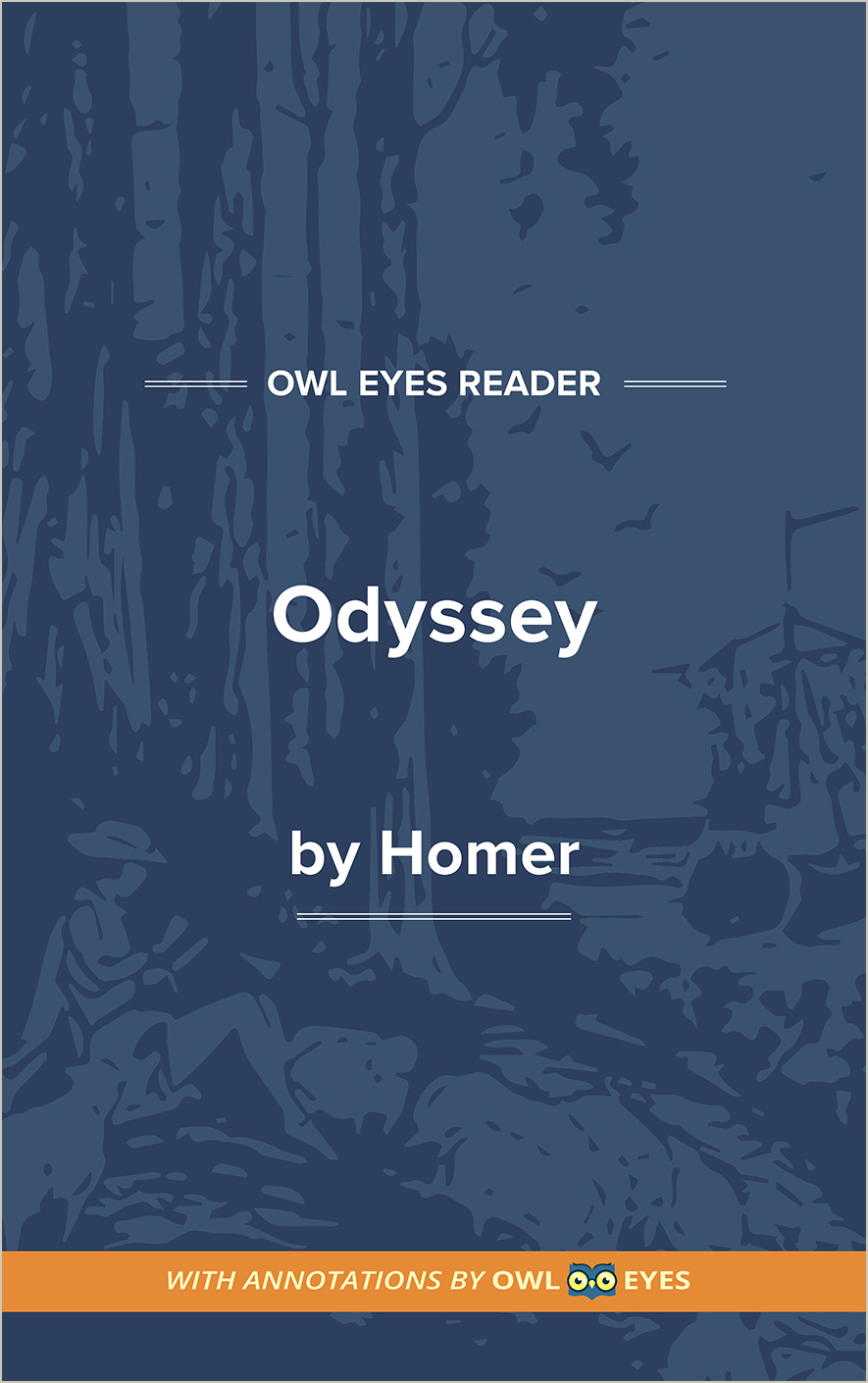- Annotated Full Text
- Literary Period: Classical
- Publication Date: -750
- Flesch-Kincaid Level: 12
- Approx. Reading Time: 9 hours and 47 minutes
"Tell Me, O Muse, of that ingenious hero who traveled far and wide after he had sacked the famous town of Troy." So begins Homer’s epic, The Odyssey, one of the oldest and most influential texts in Western literature. It commences ten years after the end of the Iliad's Trojan War and explores the Greek concept of nostos, the desire to return home. Hero Odysseus is stranded on an island with the nymph Calypso because he has offended Poseidon, the god of the sea, who now blocks his journey home. Odysseus must use his cunning, intelligence, and strength to battle a cyclops, outsmart sirens, venture into the underworld, and defeat hundred suitors who have descended on his wife in his absence. While Odysseus’s wit is his greatest strength, his greatest weakness is his hubris, or pride. This classic text uses narrative devices that have inspired authors and storytellers to this day. Homer’s invocation of the muse survives in the popular poetic notion that poetry flows through the poet from a divine source while starting the story in medias res, in the middle of things, predates modern flashbacks. Homer employs deus ex machina, the unexpected intervention of a god to save a seemingly hopeless situation, by having the goddess Athena repeatedly mediate on Odysseus’s behalf. The Odyssey is a legendary tale of heroes, gods, and home that perfected the epic form and modern-day hero quest.
- Annotated Full Text
- Literary Period: Classical
- Publication Date: -750
- Flesch-Kincaid Level: 12
- Approx. Reading Time: 9 hours and 47 minutes

